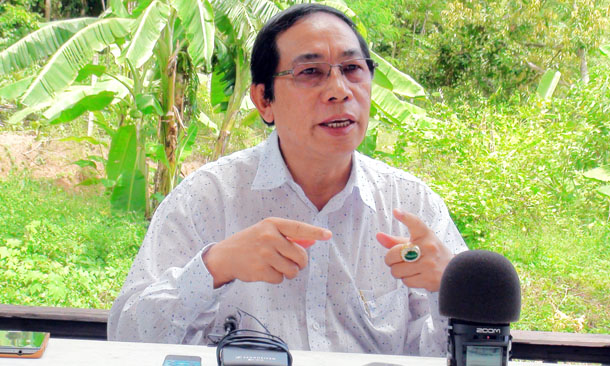CHIANG MAI, Thailand — A powerful Shan armed group confirmed it would sign a much-debated peace deal during a press conference in northern Thailand on Thursday, but called on the government to uphold the terms of the pact.
The Restoration Council of Shan State (RCSS) joins seven other ethnic armed groups in support of signing the nationwide ceasefire agreement (NCA), with a signing ceremony scheduled to be held in Naypyidaw next week.
“We agreed to sign the agreement on Oct. 15 with seven other ethnic groups,” head of the RCSS, Lt-Gen Yawd Serk, said at a press conference on Thursday. “But I am concerned that the government and the Tatmadaw [Burma’s Armed Forces] won’t comply with a key chapter of the NCA which is the formation of a federal union.”
Yawd Serk said the armed group had opted to accede to the accord in order to join political dialogue which, according to the text, will commence within 90 days of the signing.
He stressed that political dialogue was the only means of addressing ethnic conflict but called on the government to show sincerity in addressing ethnic issues.
“We don’t want to see the government secure the NCA just to win support in the election. We worry that they haven’t thought how to seriously comply with the NCA after securing it,” Yawd Serk said. “I hope the [agreement] is not just to show off to the international community in order to gain a good image.”
Despite backing the agreement and therefore diverging from the position of several major ethnic armed groups including the Kachin Independence Army and the Shan State Army-North, the RCSS leader agreed the accord should be “inclusive”—open to all armed groups to sign.
In a statement released on Thursday, RCSS called on the government to avoid troop deployments in multiple townships in Shan State where the group has a presence and facilitate the establishment of additional liaison offices.
The RCSS decision to sign the peace deal comes despite multiple armed clashes with government troops in recent months which prompted the group to call for the suspension of electoral campaigning in over a dozen townships in Shan State.
In Thursday’s statement, the RCSS claimed the Burma Army “did not comply” with the initial bilateral ceasefire agreement signed with the government in December 2011, leading to frequent armed clashes.
Nevertheless, the group said in order to guarantee “equal rights, self-determination and… a genuine democratic federal union,” it supported signing the NCA.

















